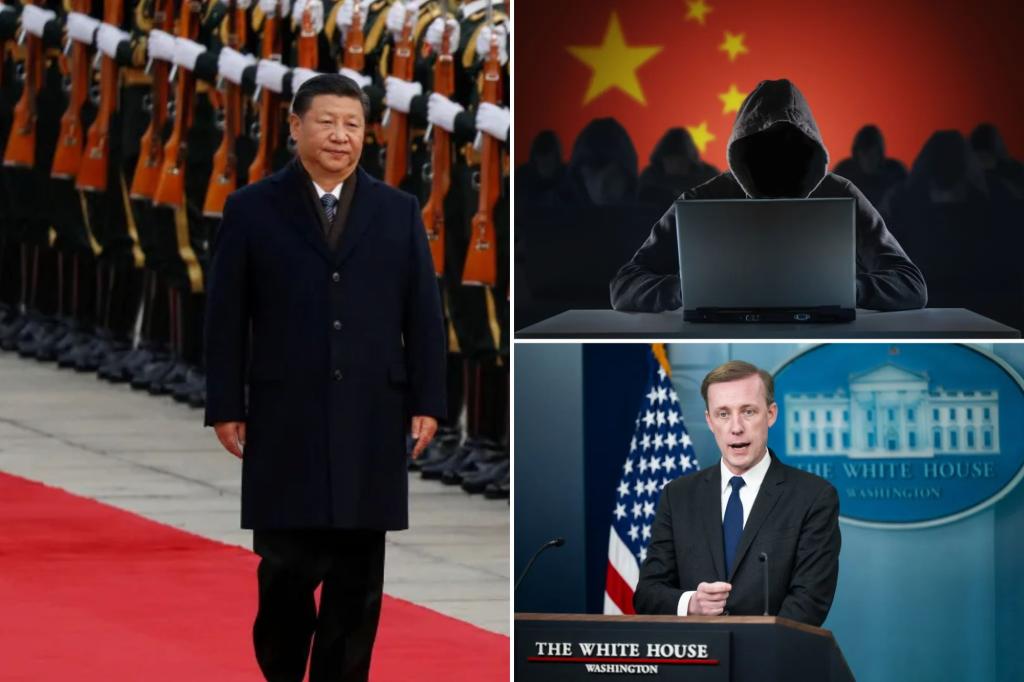The United States faced a significant cyber security breach in mid-2023, when hackers linked to Chinese intelligence, known as the Salt Typhoon group, infiltrated the networks of major telecommunications companies like Verizon and AT&T, as well as systems used for court-authorized surveillance. This intrusion, which went undetected for as long as 18 months in one network and six months in another, compromised data belonging to over a million individuals, including sensitive communications related to high-ranking government officials like President-elect Donald Trump, Vice President-elect JD Vance, and Vice President Kamala Harris. The hackers focused particularly on communications originating from Washington, DC, collecting a wealth of information including IP addresses, phone numbers, and other personal data. This breach has been called the worst telecom hack in US history, raising serious concerns about national security and the vulnerability of critical infrastructure.
The sophistication and duration of the attack highlighted the challenging nature of cyber warfare in the 21st century. The hackers employed advanced tactics to evade detection, mimicking the behavior of systems engineers and masking their activities to blend in with normal network operations. They were able to exfiltrate the stolen data, routing it through various international locations before ultimately bringing it back to China. Even after the breach was discovered, the hackers proved resilient, modifying their tactics and remaining embedded in some of the compromised systems as late as October 2023. The incident underscored the difficulty in fully eradicating sophisticated cyber intrusions and ensuring the long-term security of critical networks.
The Chinese government has denied any involvement in the attack, accusing the US of making unfounded accusations and engaging in its own cyber espionage activities. However, the evidence linking the Salt Typhoon group to Chinese intelligence agencies has raised serious concerns within the US government and the cybersecurity community. The incident comes amidst escalating tensions between the US and China, with cybersecurity becoming an increasingly important battleground in the broader geopolitical rivalry. The attack highlighted the vulnerability of US telecommunications infrastructure to foreign intrusion and the potential for such breaches to compromise sensitive government communications and personal data.
The breach has prompted a reassessment of cybersecurity practices within the US government and private sector. Key officials have begun shifting away from traditional calls and texts, opting instead for encrypted communication channels offered by private apps like Signal to protect their conversations from potential surveillance. The incident also revealed the vulnerability of aging telecommunications equipment, which the hackers exploited to gain access to the networks. The incident serves as a stark reminder of the need for continuous investment in cybersecurity infrastructure and the adoption of more robust security measures to defend against increasingly sophisticated cyber threats.
Beyond the immediate impact on telecommunications networks, the incident reflects a broader shift in China’s cyber espionage strategy. While previously focused primarily on stealing trade secrets for economic gain, China now appears increasingly interested in using cyber warfare to achieve geopolitical objectives. This shift is evident in a series of recent cyberattacks targeting critical infrastructure, including a fall 2023 incident where Chinese-backed hackers gained access to systems controlling US power grids and ports. This alarming trend underscores the growing threat posed by state-sponsored cyberattacks and the potential for these attacks to disrupt essential services and undermine national security.
The US government has responded to these escalating cyber threats by increasing investments in cybersecurity, strengthening partnerships with private sector companies, and imposing sanctions on individuals and entities linked to malicious cyber activities. However, the scale and sophistication of the challenges require a comprehensive and sustained effort to protect critical infrastructure, safeguard sensitive data, and deter future attacks. The incident serves as a wake-up call, highlighting the urgent need for a coordinated national strategy to address the growing cyber threat from China and other adversaries. This strategy must include not only defensive measures, but also offensive capabilities to deter future attacks and hold perpetrators accountable. The ability to effectively defend against and respond to cyberattacks is crucial for maintaining national security and economic prosperity in the 21st century.











